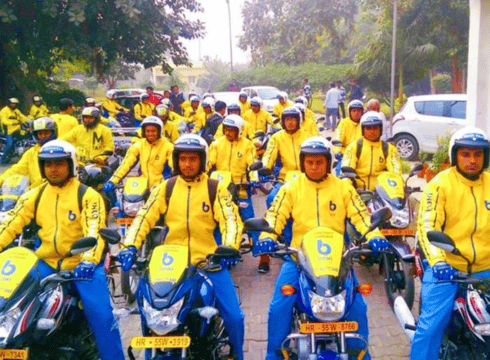Reportedly, the state transport department was issuing challans to delivery executives plying two-wheelers
The development follows after the Delhi government issued notice to Ola, Uber and Rapido for flouting the ban
On February 20, the Delhi government issued a public notice directing bike taxi aggregators to stop operations
Inc42 Daily Brief
Stay Ahead With Daily News & Analysis on India’s Tech & Startup Economy
Delhi government is set to ask food delivery and ecommerce companies to instruct delivery executives to not use their two-wheelers as bike taxis, as the bike taxi ban row intensifies in the national capital.
Ashish Kundra, principal secretary and commissioner of the Delhi Transport Department was cited by ET as saying, “We are not catching anyone operating in the food delivery and ecommerce sector. If there have been any incidents of food delivery workers being given challans, they might have been doubling up as bike taxis, which is not legal.”
The senior official said that the state transport department would send a letter to all ecommerce companies and food delivery companies by the end of Friday.
The development follows after the Delhi government issued notice to Ola, Uber and Rapido for flouting the ban two days back.
Further, media reports have suggested that the state transport department was issuing challans to delivery executives plying two-wheelers. This prompted Swiggy and Zomato to write to Kundra, stating that the recent directions on two-wheelers have been misrepresented by the RTO.
Incidentally, many delivery workers do double up as bike taxi drivers as a means of extra income when they are not on delivery duty. However, this has seen many delivery executives getting challans.
Delhi Bike Taxi Ban: A Refresher
On February 20, the Delhi government banned bike taxis, directing aggregators to stop operations in the national capital region in a public notice.
The transport department stated that the bike taxis violate the Motor Vehicle Act of 1988, and cautioned aggregators such as Uber, Ola and Rapido that they would be liable for a fine of up to INR 1 Lakh if found plying bike taxis despite the ban.
A huge backlash from the industry followed the ban, with the Internet and Mobile Association of India (IAMAI) urging the Delhi government to not take any coercive action against bike taxi drivers and aggregators.
The industry body had pointed out that under the Centre’s motor vehicle aggregator policy of 2020, the government had encouraged the use of non-transport vehicles by aggregators to better utilise the existing vehicle base.
The state government has yet to release the final version of its draft aggregator policy.
A work in progress for over a year, Delhi’s draft aggregator policy might allow bike taxis if they were electric vehicles (EVs). A draft issued last July included steep electrification goals for bike taxi aggregators, asking them to electrify their whole fleet within two years after the notification of the policy.
Following the public notice, Delhi transport minister Kailash Gahlot said that companies could apply for a new licence under the proposed policy.
“Aggregator policy for two-wheeler, three-wheeler and four-wheeler is in its final stage and will be rolled out soon helping them to apply for grant of license under the new scheme,” he said on Twitter on February 20.
This has also prompted a strong backlash from the industry. In a statement given last week, Uber said that the electrification goals set by the Delhi government under the draft aggregator policy might kill the bike taxi industry, given that few gig workers can afford to switch to EVs.
{{#name}}{{name}}{{/name}}{{^name}}-{{/name}}
{{#description}}{{description}}...{{/description}}{{^description}}-{{/description}}
Note: We at Inc42 take our ethics very seriously. More information about it can be found here.


